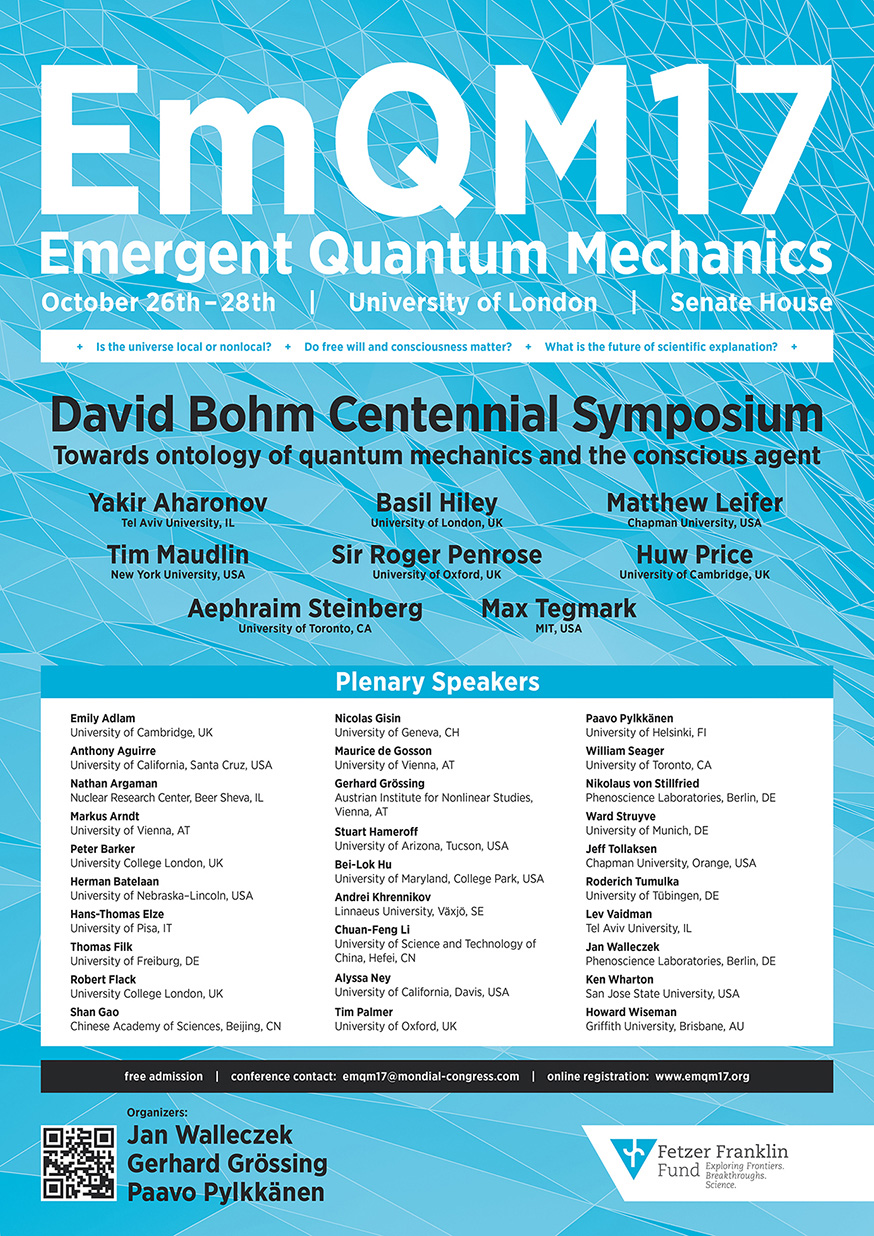Garnet Ord
Emergence of the Quantum Algorithm from Einstein’s Postulates
In the tradition of Bohm and Hiley1, emergent quantum mechanics seeks basic principles that imply the quantum algorithm from a deeper level picture. Regrettably, answers to the fundamental question `Emergent from what?‘ remain elusive. Nevertheless, the simpler question `How does special relativity overlook quantum mechanics?‘ has an answer that simplifies the domain of the fundamental question.
On close inspection, special relativity misses quantum mechanics through the implicit assumption that point particles are completely described by scale-free worldlines. This expectation, combined with Einstein’s two postulates, generates the Lorentz transformation and the kinematics of special relativity. However, if the worldline is taken as the domain of a binary periodic ‘world-signal‘ whose frequency is determined by mass, the character of the classical theory changes. In effect, the postulate requiring the equivalence of inertial frames forces signal processing in general, and the Fourier uncertainty principle in particular, into the domain of special relativity. This involves a reexamination of the actual meaning of inertial frame equivalence, given world-signals. Concurrently, the binary aspect of the world-signal identifies the algorithmic role of the `wavefunction’ as that of a Lorentz filter, projecting the effects of time dilation into the non-relativistic regime, resulting in the emergence of phase. Technical results include the free-particle Dirac and Schroedinger equations in contexts where the origin and function of ‘the algorithm‘ is known. At a more general level, the work provides insight into questions of nonlocal quantum information transfer by linking the Lorentz transformation and mass to signal processing.
1 The Undivided Universe, D. Bohm and B. J. Hiley, Routledge, 1993
![]()


